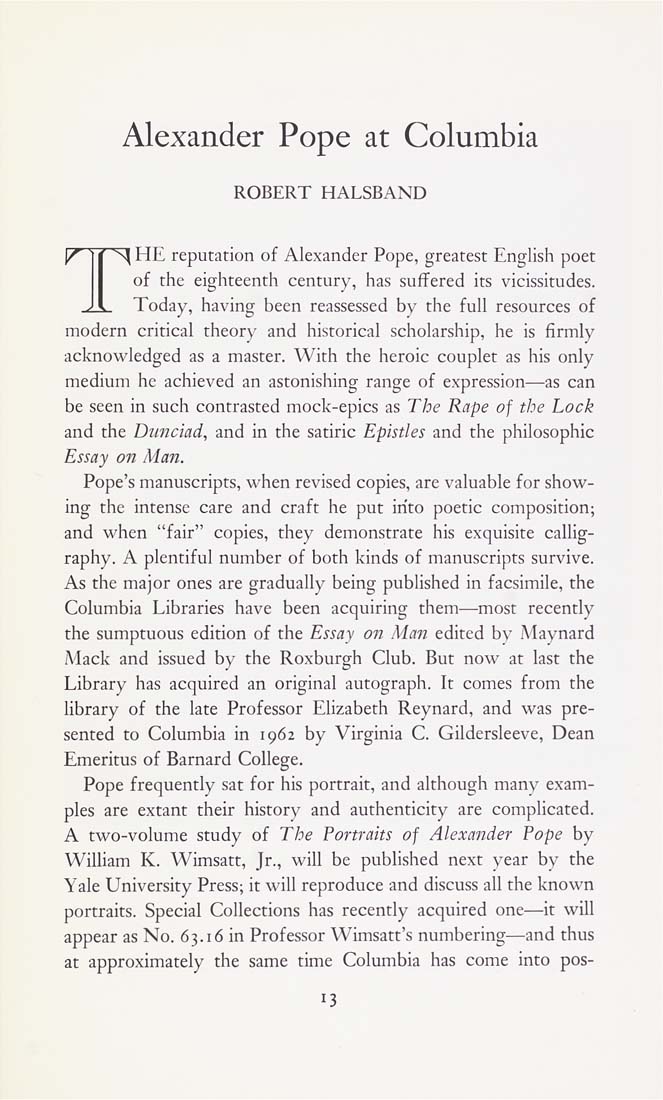Columbia Library columns (v.14(1964Nov-1965May))
(New York : Friends of the Columbia Libraries. )
|
||
|
|
|
|
| v.14,no.1(1964:Nov): Page 13 |

Alexander Pope at Columbia T ROBERT HALSBAND !/■ If N^FIE reputation of Alexander Pope, greatest English poet of the eighteenth century, has suffered its vicissitudes. Today, having been reassessed by the full resources of modern critical theory and historical scholarship, he is firmly acknowledged as a master. With the heroic couplet as his only medium he achieved an astonishing range of expression—as can be seen in such contrasted mock-epics as The Rape of the Lock and the Dunciad, and in the satiric Epistles and the philosophic Essay on Man. Pope's manuscripts, when revised copies, are valuable for show¬ ing the intense care and craft he put into poetic composition; and when "fair" copies, they demonstrate his exquisite callig¬ raphy. A plentiful number of both kinds of manuscripts survive. As the major ones are gradually being published in facsimile, the Columbia Libraries have been acquiring them—most recently the sumptuous edition of the Essay on Man edited by Maynard Mack and issued by the Roxburgh Club. But now at last the Library has acquired an original autograph. It comes from the library of the late Professor Elizabeth Reynard, and was pre¬ sented to Columbia in 1962 by Virginia C. Gildersleeve, Dean Emeritus of Barnard College. Pope frequently sat for his portrait, and although many exam¬ ples are extant their history and authenticity are complicated. A two-volume study of The Portraits of Alexander Pope by William K. Wimsatt, Jr., will be published next year by the Y ale University Press; it will reproduce and discuss all the known portraits. Special Collections has recently acquired one—it will appear as No. 63.16 in Professor Wimsatt's numbering—and thus at approximately the same time Coluinbia has come into pos- 13 |
| v.14,no.1(1964:Nov): Page 13 |







